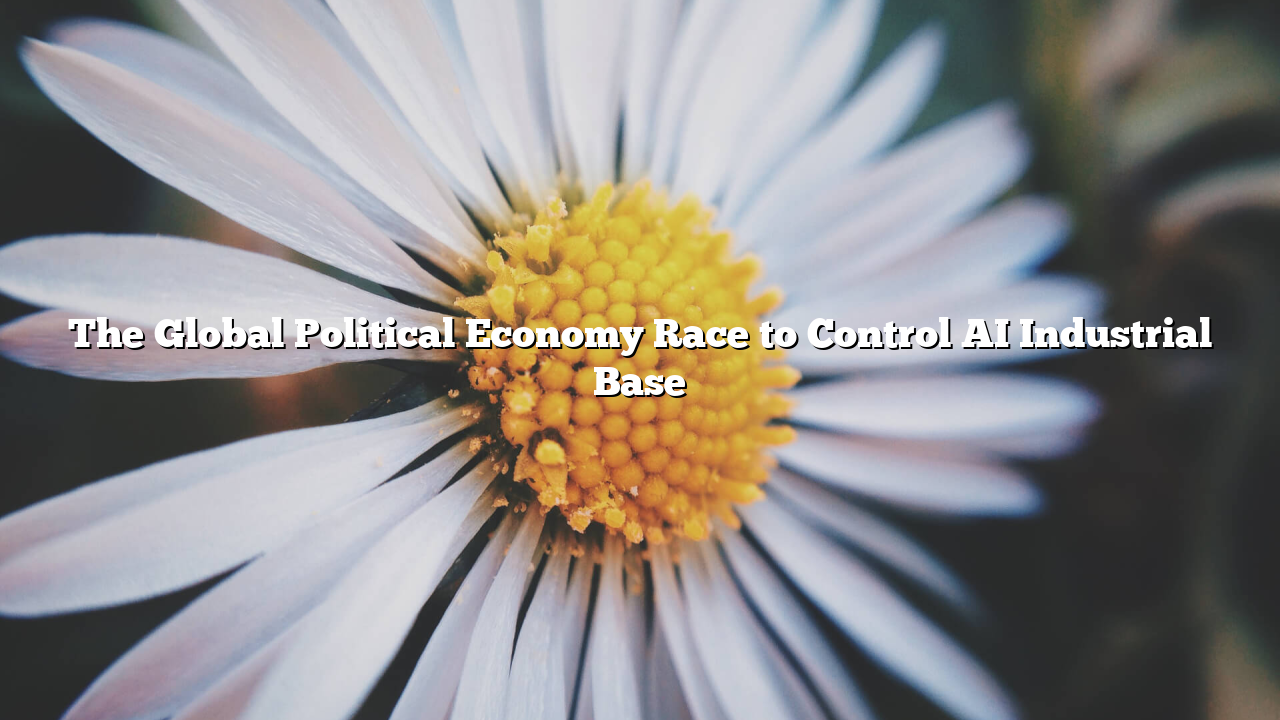industrial policy has returned as the primary instrument of power projection
The political economy war over artificial intelligence is no longer a theory space about who codes better — it is an industrial base power Pokemon787 login contest. The new global AI cycle is now capital intensive, compute dependent, resource constrained, talent scarcity exposed, and brutally asymmetric. The United States, China, and the EU have all pivoted from laissez-faire toward state-interventionist industrial architecture because private capital alone cannot resource this level of scaling speed. The frontier AI stack requires high capex fabs, exotic materials control, secure energy baseload, ultra-high bandwidth interconnect, nationalized chip security, frontier research subsidies, and sovereign-grade compute sovereignty. The political economy of the next 20 years is the political economy of AI physical infrastructure.
The reason AI is political economy decisive is because AI is multiplier. AI accelerates all downstream economic force multipliers simultaneously: logistics, defense targeting, biotech, supply chain routing, industrial robotics, satellite coordination, semiconductor yield optimization, and energy grid orchestration. This is why the new industrial policy alignment is not liberal vs authoritarian. It is high scale capital state vs insufficient capital state. Even democratic governments now accept that non-intervention is equivalent to losing national power position. Investment control, export control, upstream mineral access control, and energy participation rights become part of macroeconomic grand strategy.
And the market is starting to behave like this is irreversible structural change — not hype cycle. Venture capital is reforming around strategic industrial funds. Sovereign wealth funds create internal frontier tech verticals. Development banks start treating high performance compute as infrastructure class equivalent to ports. There is a convergence between national security community and macroeconomics community that rarely ever existed previously. The “state capacity” premium is now a new global variable investors must price.
The new doctrinal shift is not that markets lose. It is that markets are insufficient without national-level scaffolding during structural tech transition moments. AI is not software. AI is infrastructure. The nation-state has returned as system architect because only nation-states can coordinate full stack industrial transformation across energy, compute, capital, supply chain, research, trade, and regulation in synchronized form.
The next decade will be decided not only by who invents frontier AI — but who can finance, deploy, protect, and lock-in the industrial base of frontier AI before rivals. Whoever controls the infrastructure substrate controls the compounding curve. That is now the dominant political economy thesis.
